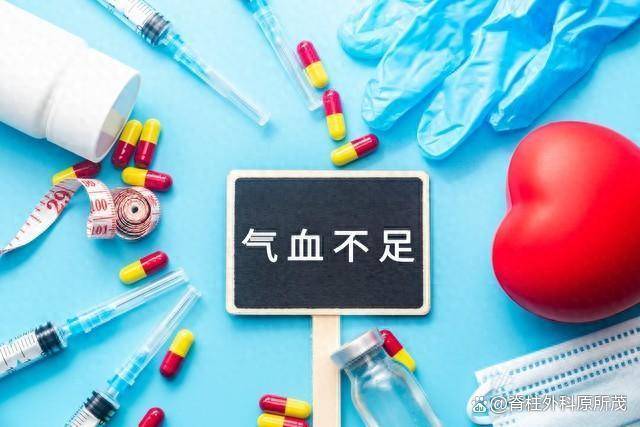# Get some dry goods #
In a vibrant market, two elderly friends are selecting fresh ingredients. One complains, “I’ve been feeling tired lately, even carrying a basket feels heavy.” The other nods in agreement, “I feel the same way, always feeling short of breath, and my complexion is not as rosy as before.” This kind of conversation is not just between them, similar voices can be heard in almost every corner.
This is not coincidental. As age increases, many people face the issue of inadequate qi and blood. This condition not only affects daily vitality but also has long-term impacts on overall health. So, how can this situation be effectively improved through daily diet?
“Unveiling: The hidden threat of inadequate qi and blood to health”
Inadequate qi and blood, a common issue among middle-aged and elderly populations, is often ignored but subtly affects daily life. Qi and blood, important concepts in traditional Chinese medicine, refer to the basic substances that maintain normal bodily functions and health. When there is inadequate qi and blood, the body functions like a machine lacking fuel, unable to operate effectively.
The most common symptoms include persistent fatigue and paleness. Imagine an elderly person who often feels exhausted, this may be the result of inadequate qi and blood. There are also dizziness and tinnitus, symptoms often mistakenly considered normal for the elderly, but in reality, they are alarms signaling inadequate qi and blood.
Inadequate qi and blood not only affect daily vitality and mood but may also lead to more serious health issues. Studies have shown that prolonged inadequacy of qi and blood can lead to lowered immunity, making the body more susceptible to diseases. Additionally, inadequate qi and blood may accelerate the aging process, affect skin health, and lead to early wrinkles or dull skin tone.
In modern medicine, inadequate qi and blood can be likened to malnutrition or anemia, which are more common among middle-aged and elderly populations. For example, a study targeting people over 65 found that over 30% of participants had varying degrees of anemia, to some extent reflecting the prevalence of inadequate qi and blood.
Therefore, emphasizing the prevention and improvement of inadequate qi and blood is crucial for enhancing the quality of life for middle-aged and elderly individuals, delaying aging, and even preventing more serious health issues.
Unveiling: Why is qi and blood often inadequate?
Prior to discussing how to improve inadequate qi and blood, understanding its common causes is crucial. Qi and blood are the foundation of maintaining bodily health and affect various bodily functions. Many factors in daily life may lead to inadequate qi and blood.
Dietary habits play a crucial role. Many people tend to favor high-calorie, low-nutrient fast food, neglecting the intake of vegetables, fruits, and high-protein foods. Imbalanced nutrition directly affects the generation of qi and blood; for example, insufficient iron intake can cause anemia, thereby impacting qi and blood. Research has shown that nearly 20% of adults have inadequate iron intake, to some extent explaining why so many people suffer from inadequate qi and blood.
Lifestyle is also a key factor. The fast pace of modern life and high stress levels lead to decreased sleep quality. Prolonged late nights and insufficient sleep can impair spleen and stomach function, affecting the efficiency of converting food into qi and blood. In addition, lack of exercise is often a neglected cause. Moderate exercise promotes blood circulation, aiding in the generation and distribution of qi and blood. Conversely, prolonged sedentary behavior hinders blood circulation, exacerbating inadequate qi and blood.
Age is another factor that cannot be overlooked. With increasing age, bodily functions gradually decline, including the generation and circulation capabilities of qi and blood. Therefore, inadequate qi and blood are more common among middle-aged and elderly populations.
Introduction to foods that replenish qi and nourish blood
Red Dates: Nature’s small energy pack
Red dates, often praised as nature’s small energy pack, are rich in vitamin C and iron, significantly aiding in blood replenishment. Iron is a crucial component for producing red blood cells, and vitamin C facilitates iron absorption. In daily life, red dates can be consumed in simple ways, such as soaking in water, cooking porridge, or adding to soups. Additionally, red dates contain various trace elements and vitamins that effectively promote bodily health.
Black Soybeans: The black nutritional treasure trove
Black soybeans are considered excellent for blood replenishment, containing rich protein, iron, and vitamin E. They have a high iron content, which has a positive effect on improving anemia. Black soybeans also have abundant dietary fiber, promoting intestinal health and aiding in nutrient absorption. Consuming black soybeans by sprouting or cooking into porridge can improve digestibility and enhance nutritional value.
Longan: The sweet choice for nourishing qi and blood
Longan, also known as longan fruit, is a sweet choice for nourishing qi and blood. It contains rich glucose and sucrose, rapidly replenishing energy and relieving fatigue. The iron content in longan should not be underestimated, as it helps alleviate inadequate qi and blood. Longan can be consumed raw, cooked in soup, or used in desserts. For instance, Longan Red Dates Tea is not only sweet in taste but also combines the blood-replenishing effects of both ingredients, suitable for daily consumption.
These foods not only have high nutritional value but are also easy to incorporate into daily diets. Consistent consumption can effectively improve inadequate qi and blood issues, enhancing overall health. When consuming these foods, attention should also be paid to the variety and balance of food combinations, individual physical differences, and moderate intake to achieve optimal blood replenishment effects.


